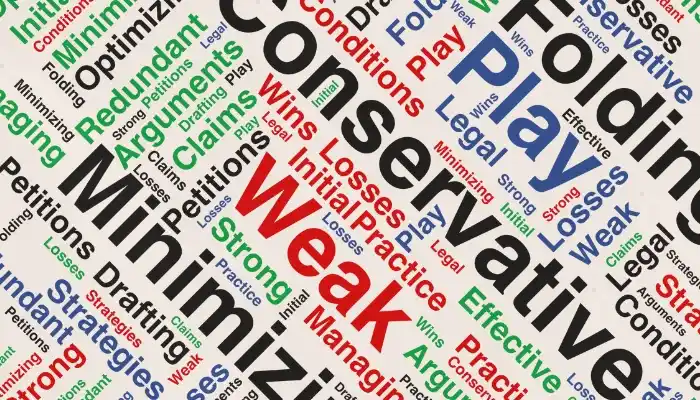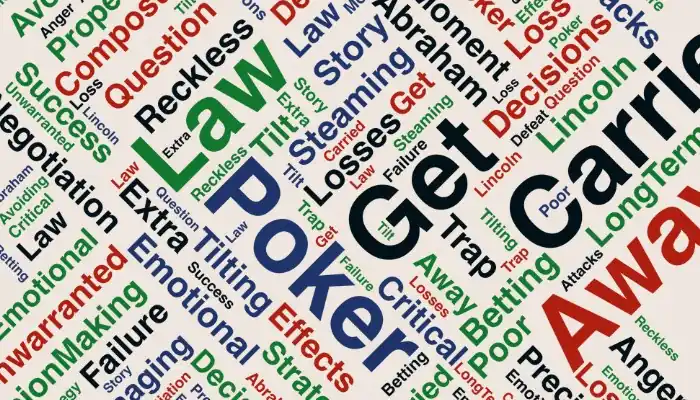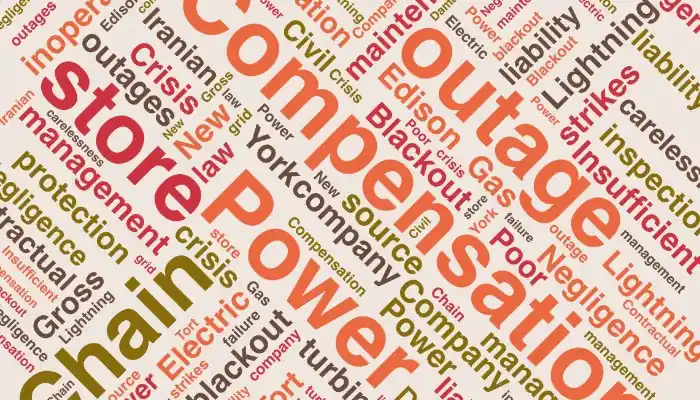The bets you don’t place are just as important as those you do—perhaps even more so. In poker, since you can’t win every hand, it’s crucial to minimize your losses when holding weak cards. Playing every hand comes at a cost, and the longer you stay in the game, the more it costs. Therefore, folding a bad hand early on saves more money. The greatest savings occur when you fold a bad hand before placing any bets at all.
This approach is known as “conservative play” and, while not without its drawbacks, it is far better than placing a few initial bets and then folding midway. Those unnecessary early bets are wasted money, and they can add up significantly over the course of the game. It’s usually better to select a few hands with winning potential and play them to the end, while discarding the rest.
Application in Legal Practice
Many lawyers face a similar problem. Instead of crafting a strong and precise petition, they often fill a complaint or petition with multiple claims, many of which are redundant. This is done out of fear of missing a valid claim. This same issue leads legal advisors to clutter appellate briefs with numerous insignificant arguments, rather than focusing on a few strong ones.
Effects of Poor Drafting
Legal handbooks warn that unnecessary claims and arguments detract from the significance of the main points. Yet, some lawyers continue this practice because they don’t see the real cost. No court will change its decision because of an insignificant argument, but these arguments can take up space needed for more important ones. While it’s difficult to precisely calculate the cost of poor drafting, it certainly has negative effects.
Controlling Initial Conditions
One poker expert notes that complex events are heavily dependent on their initial conditions. He concludes that the best way to control a situation is to manage it correctly from the start. In poker, folding a bad hand, and in law, eliminating a meaningless argument, can prevent greater losses. This action can be seen as an invisible win.
However, some lawyers still disregard this advice and fill their briefs with unnecessary words. Perhaps a few hours of playing cards would better teach them the importance of conservative play.
(Of course, I mean playing without betting, as gambling is illegal under Iranian law.)
Effective Strategies in Poker and Law
In poker, a conservative strategy means playing strong hands and folding weak ones. This strategy helps minimize losses and maximize wins. Similarly, in law, lawyers should focus on strong arguments and avoid presenting weak claims. This approach increases the chances of success and reduces risks.
Conclusion
Considering the importance of optimizing wins and managing losses in both poker and professional life, especially in the legal field, learning conservative strategies and avoiding unnecessary bets can significantly impact success. We hope these lessons will help you make more informed decisions and achieve better results in both your game and life.
Source: Lawyers’ Poker: 52 Lessons that Lawyers Can Learn from Card Players: Lubet, Steven: 9780195369014: Amazon.com: Books. (n.d.). Retrieved June 15, 2024, from.




